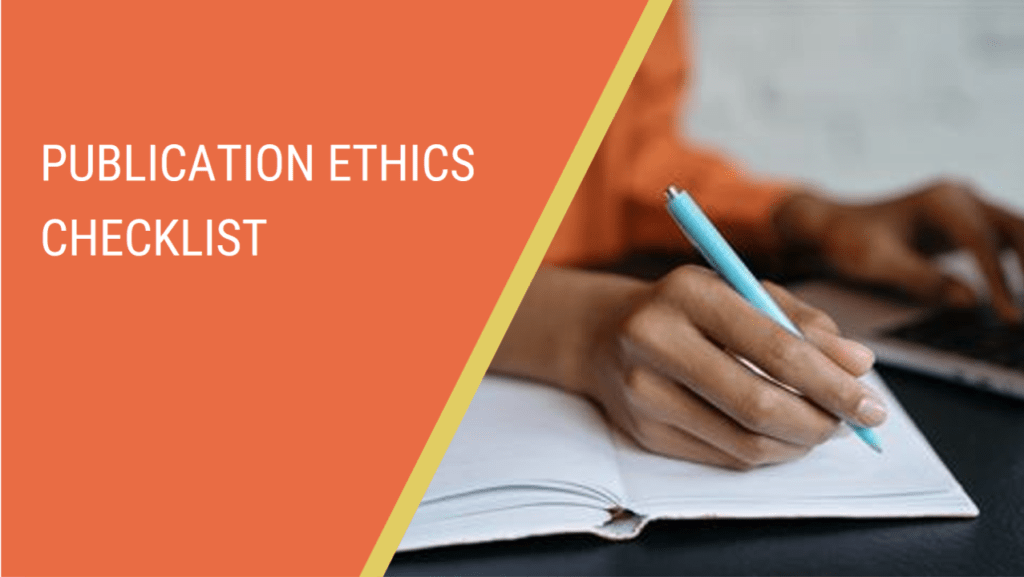Maintaining the highest standards of publication ethics is essential for us as researchers. Complying with the standards of publication ethics improves the integrity and credibility of scientific research. In this blog post, we are going to demonstrate the most prevalent issues in publication ethics. This post aims to be a valuable guide to ensure that our work meets ethical guidelines throughout the publication process. Now let’s examine the Publication Ethics main points:
1. Authorship and Co-Authorship
- Ensure all authors meet the authorship criteria avoiding gift authorship or ghost authorship. When a significant contributor to a study is excluded from the list of authors, it is known as “ghost authorship.” Giving credit for being an author to someone who doesn’t meet the requirements is known as gift authorship or guest authorship.
- Get approval from every author before submitting the work.
- Acknowledge the contributions of individuals who do not meet the authorship criteria.
2. Originality and Plagiarism
- Make sure that every part of your work is original and properly credited.
- Make sure to cite and reference all your sources.
- Use a plagiarism detection tool to ensure sufficient originality.
3. Data Integrity and Reproducibility
- Ensure that your research data records are accurate and complete.
- Ensure that the results of your research are reproducible and reliable.
- Ensure data availability to other researchers whenever possible.
4. Conflicts of Interest
- Declare any potential conflicts of interest that might affect the interpretation of your research.
- Disclose any funding sources and affiliations that may create conflicts of interest.
5. Ethical Treatment of Human and Animal Subjects
- Ensure obtaining informed consent when dealing with human subjects.
- Ensure the protection of the confidentiality and privacy of all human subjects.
- Adhere to international ethical guidelines when dealing with animals.
6. Reporting Guidelines
- Adhere to the reporting guidelines for your research field or study design (e.g., CONSORT, PRISMA, ARRIVE).
- Your manuscript should include complete and accurate information about methods, findings, and limitations.
- Avoid data manipulation and data falsification that could mislead readers.
7. Editorial and Peer Review Process
- Submit your work to trustworthy journals that ensure rigorous peer review processes.
- Respond promptly and professionally to reviewers’ comments and recommendations.
- Report any potential ethical issues to the journal’s editorial office.
To preserve the integrity of the scientific community, promote trust, and advance knowledge, remember that following these ethical guidelines is essential. By adhering to these ideals, we support the group’s efforts to discover the truth and improve society.
If you want to explore this topic further, we encourage you to refer to the following resource:
- ASM Ethical Publication Checklist for Authors by the American Society for Microbiology.
- Publication Ethics
Thank you for your commitment to ethical publishing practices. We hope this post serves as a valuable reference for your future academic endeavors.
At Rasayely, we understand the challenges faced by academic authors in ensuring publication ethics and meeting journal requirements. That’s why we offer a range of exclusive services to support you throughout your publishing journey:
- English Editing Services
- Translation Services (Arabic to English and Vice Versa)
- Formatting the Manuscript to Follow Journals’ Requirements
- Journal Selection
Take advantage of our comprehensive range of services to streamline your publishing process and enhance the quality of your work. We are committed to supporting your research goals and ensuring your manuscripts adhere to the highest ethical standards.
If you’re interested in learning more about our services or have any questions, please don’t hesitate to reach out to us at info@rasayely.com.

